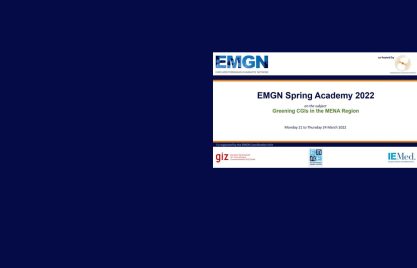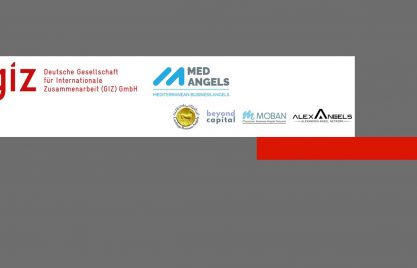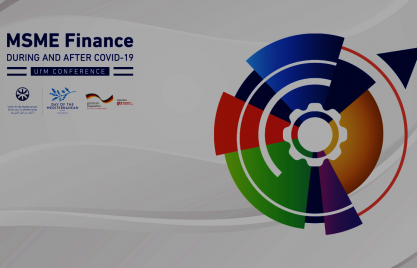Microfinance executives, regulators and development partners came together at the Sanabel conference in Casablanca late last year to elaborate developments in an a new era of microfinance in the Arab region. The GIZ Programme for the “Promotion of the Microfinance Sector in the MENA Region” took a global and regional view on crowdfunding, in both Islamic and conventional terms, enriching the exchange on progress and trends in microfinance in the region.
Across the globe, crowdfunding platforms such as ‘Kickstarter’ seem to have revolutionized startup finance. Supporters chip in with as little as ten dollars and pool their funds in campaigns that are pitched online to sponsor entrepreneurial ideas from artwork to software. Based on different modalities ranging from donations to risk capital, from cross-border funding for emerging markets to supporting businesses with co-funding by the government, the crowd finances projects that otherwise would have not made it far from the scratch book. The global crowdfunding industry has grown by 110% from 2010-15 and was estimated at USD 34.4 bn at end-2015, comprising more than 1200 online platforms. The World Bank projects its growth to USD 93 bn by 2025.
Looking at the Middle East and North Africa, the question arises whether crowdfunding can attract funds from a community of supporters – the diaspora and others alike – and identify promising projects by local entrepreneurs, thereby promoting an Arabic identity and addressing a funding gap in startups or in SMEs (the ‘missing middle’ which is in need of finance estimated at USD 250 bn globally). Which role, if any, could MFIs play in this domain?
“We decided to go through crowdfunding because the brand is heavily reliant on our community so why not have them own a piece.”
“We wanted to show [our proposal] to the crowd and see the feedback for our product. It was hard getting investors in the region.”
Entrepreneurs in successful crowdinvesting campaigns at Eureeca.com
The market potential for crowdfunding in the MENA is estimated at USD 6 bn and the young industry already embraces diverse platforms. They adapted to the region’s specifics and are the forerunners within their domains, also resembling modes of Islamic finance, with and without MFIs. A few examples:
- Donation-based crowdfunding: ‘Kiva’, one of the oldest platforms to date, collects donations from the online crowd for on-lending to MFIs at zero interest. MFIs such as ‘Al Majmoua’ in Lebanon serve as field partners for successful lending (and re-lending).
- Islamic crowdinvesting: Cairo-based ‘Shekra’ tapped the market for ‘Mudarabah’ and ‘Musharakah’ investments in 2013, offering both local and foreign investors to contribute thousand dollars or more to local start-ups based on profit-and-loss-sharing. ‘Eureeca.com’ is another example for cross-border crowdinvesting.
- Islamic crowdlending: ‘Liwwa’, headquartered in Amman since 2013 and operating a branch in the UAE, provides ‘Murabaha’ (mark-up sale) funding to local SMEs. Around 30 investors mostly from Jordan, Saudi Arabia and the UAE pledge on average USD 250 each within two weeks of a funding campaign. Businesses receive on average USD 20,000. Liwwa partners with banks and explores new digital means to facilitate repayments.
As promising and effective as a tool it seems, crowdfunding is still a niche market serving a market niche. Anecdotal evidence from the region points to first promising answers to start-up finance, be it Islamic or conventional – in collaboration with MFIs or in competition with them.
Undoubtedly, the new funding scheme brings along new challenges and unprecedented risks for both the (naïve) retail investor and the financial client. Regulators across the globe are either already actively supervising crowdfunding or, as in the MENA, they are closely monitoring the industry. Above all, there seems to be consent to a wider degree that crowdfunding can neither directly, explicitly contribute to alleviating poverty, nor can it evolve and flourish for the benefit of start-ups under too rigid regulations but proportionate rules based on the specific risks inherent in the different crowdfunding types mentioned above.
As the panel discussion at the Sanabel conference revealed, with both its programs for the promotion of non-bank SME finance and the promotion of inclusive financial systems in the MENA, GIZ is well-positioned to promote crowdfunding in the region and advice regulators for adequate actions in financial inclusion and protection.
By Thomas Rahn and Atilla Kaiser-Yuecel



